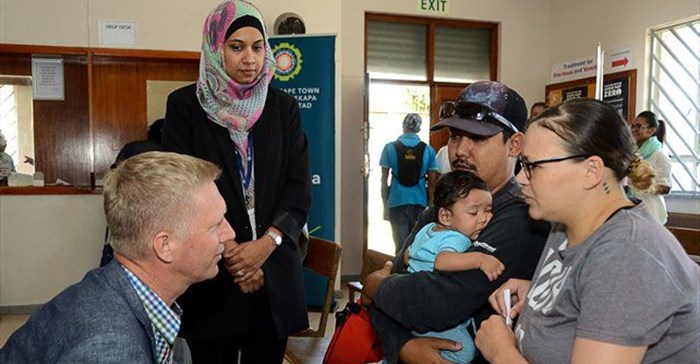
Top stories






More news

















The city's health’s services were limited to family planning, basic ante-natal care (Banc) and testing for HIV, TB and sexually transmitted infections. Going forward, mothers will be able to access post-natal services like breastfeeding and nutrition advice as well as prevention of mother to child transmission (PMTCT) in cases where the mother is HIV positive.
This is a significant addition because it improves accessibility for the client as this service would be available in the area where they reside. It also contributes to the continuum of care and the integrated package of care that City Health wants to make available.
The City of Cape Town has been making an effort to ensure that mothers and babies are seen as a pair who receive integrated care starting from the time of conception and extending for as long as is required. It is critical that once women receive a positive pregnancy test, they are immediately booked, tested for HIV, enrolled on anti-retroviral treatment (ARVs) if needed and, after delivery, that they return to the original clinic for post-natal and child health services. Sending them from one healthcare facility for a service to another for something else, and being seen by various other clinicians confuses clients and leads to gaps in care.
The integration of mom and baby care means that during the Banc appointments, future moms can be given the baby’s Road to Health card ahead of time, taught about the importance of loving and talking to the baby in the womb and making sure she is ‘connected’ for extended support. The early follow-up after delivery helps staff identify mental health issues and offer support for breastfeeding.
Offering these services together is a cost-effective way to identify and address problems that otherwise might play out negatively in the first thousand days of the life of the child. The well-being of the mother, including the provision of a safe family planning method to prevent unintended pregnancies is just as important.
This new integrated package of care makes it easier for clients to observe all recommended health measures, but it also reduces the number of clinic visits and saves time, enabling women to be more active in the labour force, improve household income and invest more in their own as well as their children’s health, education, and well-being. This approach also means savings for the healthcare system by eliminating unnecessary clinic visits.
The integrated mom and baby one-stop-shop strategy at city clinics includes: